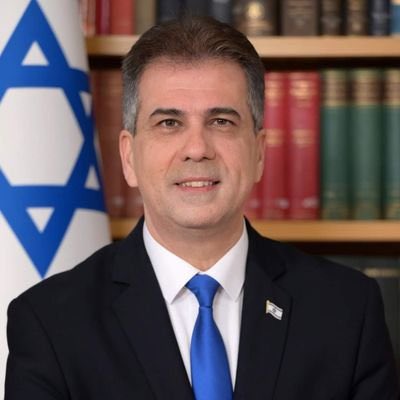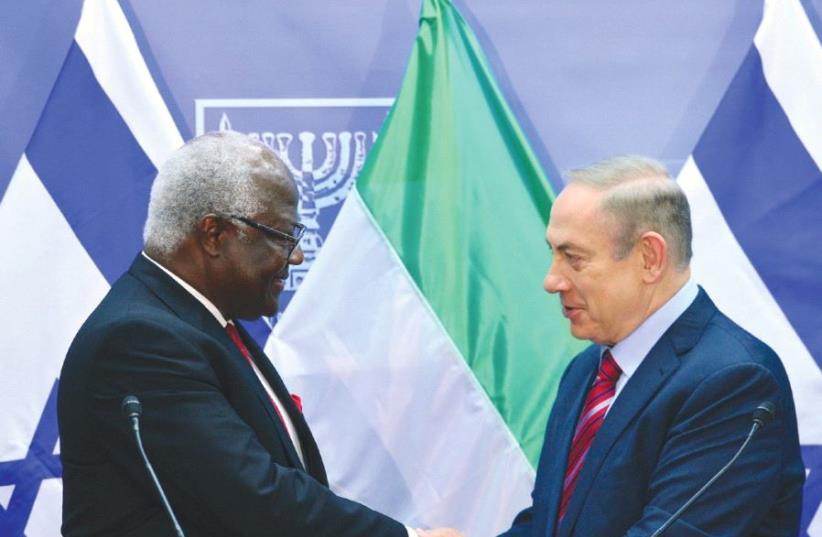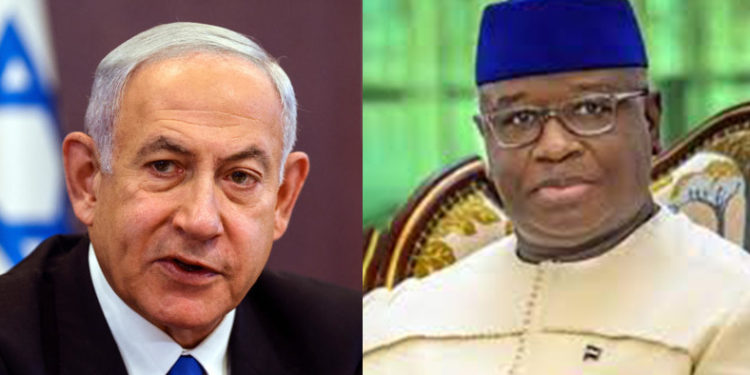Sierra Leone could be the first African and Muslim majority nation to open an embassy in Jerusalem, thereby endorsing the controversial claim by Israel of the historic city as its capital.
Jerusalem is at the heart of the dispute between Israel and Palestine, with both sides claiming exclusive ownership of it.
The Times of Israel, a multi-language online newspaper, reported on Friday that President Julius Maada Bio confirmed his government’s intention to open embassy in the city in a telephone conversation with the Jewish State’s Foreign Minister Eli Cohen.
According to the report, President Bio and Mr Cohen spoke on Thursday.
“They discussed the warm relations between both countries that date back to 1961 when Sierra Leone gained independence. As part of efforts to strengthen the relationship between the two nations, His Excellency President Bio expressed his government’s readiness to establish an Embassy of Sierra Leone in Jerusalem, the capital of the State of Israel,” the report cited a statement attributed to the Israeli government.
It quoted Mr Cohen saying that he “was pleased to hear from the president of Sierra Leone of his intentions” to open an embassy in Jerusalem.
“We continue to put Jerusalem, our eternal capital, at the head of the diplomatic program of the State of Israel,” Coehn stated.

A post from official twitter handle of State House in Freetown on Thursday confirmed the telephone conversation between President Bio and the Israeli Foreign Minister. A follow-up tweet on Friday announced the appointment of international investment banker Mikhael Jaime Shamis Mezrahi by President Bio as special envoy to Jerusalem “to activate and advance plans towards implementing the shared vision for the Sierra Leone—Israel partnership.”
Israel’s interests in Sierra Leone are currently represented by its Ambassador in Ghana.
Israel considers Jerusalem to be its capital, including East Jerusalem, which it annexed in 1980. The move has not been recognized by most of the international community, which says the final borders of the city should be decided in negotiations with the Palestinians.
Israel and Sierra Leone established diplomatic ties in 1961, but they were suspended in 1973 — along with several other African nations — following the Fourth Arab-Israeli War, known as Yom Kippur War by the Israelis and the Ramadan War by Arabs.
Under President Siaka Stevens, Sierra Leone joined member countries of the Organization of African Unity (OAU), the predecessor of the African Union (AU), to break off diplomatic ties with the Jewish state after the end of that war, which led to the captured by Israeli forces of the infamous Gaza Strip, among others.
Relations between the two countries were re-established in 1992.
Ernest Bai Koroma made the first ever visit to Israel by a Sierra Leonean president in 2017.
Israel still has relations with nearly 100 countries worldwide, but nearly all have kept their embassies in the Mediterranean coastal city of Tel Aviv.
South Africa, Zimbabwe, Namibia and Botswana are among the staunchest opponents, alongside Algeria, to Israel’s membership at the AU. The Southern African nations hold grudge for the Jewish state over its support for Apartheid. South Africa in particular has been championing the Palestinian cause on the continent.
In the 1950s, Israel had embassies in about 30 countries across the continent, according to reports. At the time, it was a member of the OAU with an observer status. It was stripped off the status after the 1973 war.
The observer status was reinstated in 1993, when Tel Aviv normalised its relations with the OAU in the wake of the Oslo Accords that year.
Israel again lost its in 2002, when the AU was established with the influence of former Libyan leader Col Muammar Gaddafi.

Israel’s last attempt to regain its observer status failed in February 2022, when it was rejected by AU heads of state, after it was unilaterally reinstated by the AU Commission chair, Mousa Fakhi Mahamat.
As of 2020, a total of 167 of the 193 UN member nations maintain diplomatic relations with Israel, according to the Jewish Virtual Library, a project of the American-Israeli Cooperative Enterprise. They included Muslim majority nations United Arab Emirates (UAE), Bahrain, Sudan, Morocco, Chad and Bhutan.
Nine of the 29 countries that do not recognize Israel today are from Africa.
Among countries which recognize the Jewish state, only the US, Guatemala, Honduras and Kosovo (also a Muslim majority country), have embassies in Jerusalem, while Paraguay announced last week it would reopen its embassy there too.
Sierra Leone is said to be the sixth country to have committed to base its diplomatic mission in the historic city of Jerusalem.
In July, Liberian President George Wear on a visit to Israel also announced his government’s intention to establish an embassy in the Jewish State, but he didn’t indicate whether the embassy will be in Jerusalem.






















